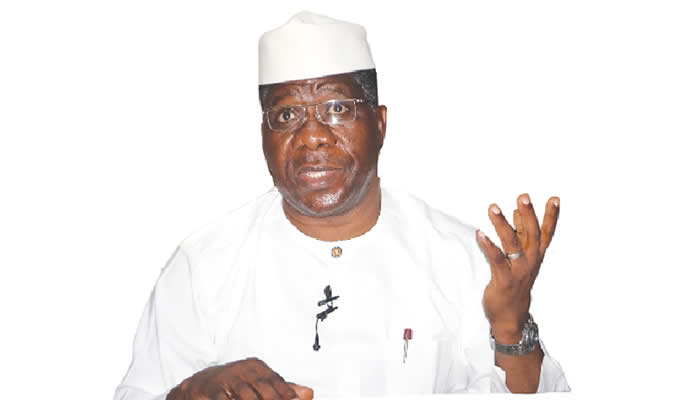Senator Opeyemi Bamidele, a key figure in the June 12 struggle, reflects on his experiences during that tumultuous period in Nigeria’s history. While he modestly downplays his role, referring to himself as an “altar boy” in a movement led by prominent figures like Pa Enahoro, Chief Ajasin, and Asiwaju Bola Tinubu, his contributions were significant. As the then President of the National Association of Nigerian Students and a human rights lawyer, Bamidele leveraged his platforms to mobilize students and advocate for the recognition of the June 12 election results. He emphasizes that the driving force behind the struggle was a shared indignation at the injustice of the annulment, a commitment to upholding the will of the Nigerian people, and a belief that the military dictatorship was a setback for the nation’s progress.
The June 12 struggle, Bamidele explains, was multi-faceted. It represented resistance against military rule, a clarion call for democracy, and a demand for electoral reforms and national unity. The movement connected people from various walks of life, forging alliances that endure to this day. While acknowledging that the current democracy may not fully embody the ideals they fought for, he views it as a step forward from military rule, a nascent stage in the evolution towards a mature democracy characterized by freedom of thought, conscience, and expression, where the votes of the people truly count. He maintains that the struggle was not in vain, as it paved the way for civilian rule, setting the stage for continuous progress and refinement of democratic practices.
Addressing the imperfections of the current democratic system, Bamidele notes the recurring trend of election disputes ending up in court, highlighting the difficulty politicians face in accepting electoral defeat. This stems from a variety of factors, including reliance on potentially unreliable agents, campaign coordinators who may mismanage funds, and suspicions of compromise by electoral officials. The process, from deciding to contest an election to the potential legal battles that follow, is complex and influenced by various factors that can impact the acceptance or rejection of election outcomes. He underscores the necessity of continuous improvement in the electoral process, emphasizing the importance of sportsmanlike conduct from both winners and losers, as well as impartial oversight by electoral bodies.
Bamidele unequivocally states that he has no regrets about participating in the June 12 struggle, considering it a necessary sacrifice to end military dictatorship and establish civilian rule. While acknowledging the limitations of the present democracy, he sees it as a foundation for future growth, urging collaboration among all stakeholders, including political parties, civil society, the media, and religious leaders, to transition from civilian rule to a genuine and robust democracy. He emphasizes the collective nature of the struggle, highlighting the contributions of countless Nigerians who participated at different levels, from attending rallies to listening to broadcasts from NADECO’s radio station.
Responding to the perception that those who did not actively participate in the June 12 struggle are now its primary beneficiaries, Bamidele argues that it’s crucial to define the criteria for participation. He points out that while some individuals took on prominent roles in organizing rallies, engaging with international bodies, and running underground media, the success of the movement relied on the support and participation of the broader Nigerian populace. He acknowledges that some former allies of the military regime may now hold positions of power, but attributes this to the nature of party politics and the formation of governments of national unity, which often include members of different parties and even non-partisan technocrats.
Regarding the significance of May 29 and June 12, Bamidele views both dates as integral to Nigeria’s history. While May 29 marks the handover of power to civilian rule, June 12 symbolizes the resilience and unwavering commitment of the Nigerian people to democracy. He recalls the sacrifices made during the struggle, the lives lost, the businesses and careers disrupted, and the harassment and detention of journalists. He believes that June 12 should be recognized as Democracy Day, while acknowledging the historic importance of May 29. He draws a parallel with other nations that celebrate Independence Day while still recognizing other significant dates in their history. He emphasizes the importance of honoring the past, maintaining that the two dates represent different facets of Nigeria’s democratic journey.
Bamidele’s harrowing escape from Nigeria marked a pivotal point in his personal involvement in the struggle. Following the arrest and trial of Chief MKO Abiola for treason, Bamidele’s Abuja office, which served as a coordination center for the legal team, was raided by security forces. Tipped off by a colleague, Bamidele narrowly avoided arrest, seeking refuge in an ambulance provided by his wife and embarking on a three-day journey to a safe location before eventually fleeing the country through a clandestine NADECO route via Badagry to Cotonou, and finally to the United States, where he was granted political asylum. This perilous journey underscores the risks and sacrifices made by those who challenged the military junta. Despite the hardships endured, Bamidele remains resolute in his belief that the struggle was worthwhile, expressing optimism about the future of democracy in Nigeria. He envisions a continued growth and maturation of democratic processes, driven by the collective will of the Nigerian people and the ongoing commitment to the ideals that fueled the June 12 movement.


